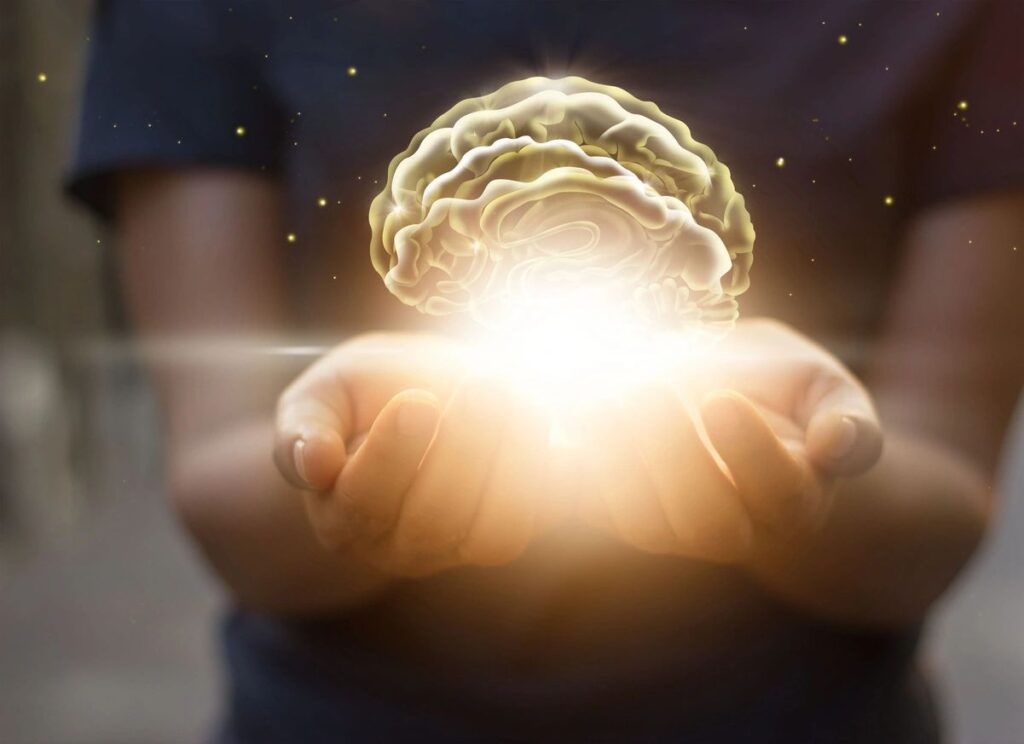
Mental Balance
About 25% of American adults suffer from a mental health condition during any given year. Although they range in severity, mental health conditions often cause disability. The reason is that mental health influences emotions, thoughts, and actions.
No doubt, maintaining a healthy mental balance is crucial for well-being. Some people are shy to talk about their mental health. Yet, learning to balance mental health is a vital skill for everyone.
Good mental health allows individuals to cope with stress, challenges, and uncertainties. It enhances decision-making and problem-solving abilities. Moreover, a stable mental state encourages positive relationships, communication, and self-esteem.
This section of our website is full of information about achieving mental balance. It discusses depression, mindfulness, and meditation.
Of course, this information is no substitute for the care of a trained professional. Yet, you can use it to guide you in your journey to better mental health. Keep reading to get started!
DEPRESSED

Understanding, Treating, and Preventing Depression
Depression is a complex and crippling mental health disorder. It goes beyond mere feelings of sadness. Depression can have a profound impact on a person’s ability to function.
Understanding depression, its treatment options, and preventative measures can help promote mental wellness. It also allows you to recognize the symptoms in yourself or a loved one. This ability is crucial for prompt care.
General Information on Depression
Depression, often referred to as major depressive disorder, is characterized by:
- Persistent feelings of sadness
- Emptiness
- A lack of interest or pleasure in activities that were once enjoyable
It goes beyond the normal fluctuations in mood that everyone experiences. Depression can also lead to a range of physical and psychological symptoms. Here are some examples.
Emotional Symptoms
Depression can alter a person’s emotional state. Even those who normally feel chipper may experience intense sadness. They may feel hopeless and irritable, causing frequent crying spells.
Cognitive Symptoms
One of the symptoms of depression is difficulty concentrating. Brain fog can make it hard to make decisions or remember things too. Similarly, depression often leads to negative thoughts and distorted thinking patterns.
Physical Symptoms
Changes in appetite and weight are common among depressed individuals. They may also notice changes in their sleeping patterns, like insomnia or oversleeping. Low energy is another frequent symptom, as well as persistent aches and pains.
Behavioral Symptoms
Due to depression, many people isolate themselves. They may also stop doing activities they used to enjoy, such as exercise or hobbies. For some, even self-care or personal hygiene is difficult
In some cases, depression can lead to thoughts of self-harm or suicide. It is crucial to seek help immediately if such thoughts arise.
Treatment Approaches for Depression
Depression is a treatable condition. Various approaches can be effective in managing its symptoms. It’s important to note that treatment plans may vary based on individual needs. A combination of therapies is often utilized. Here are some examples.
Therapy
Therapeutic approaches address negative thought patterns, teach coping strategies, and enhance emotional regulation. These include:
- Cognitive Behavioral Therapy
- Dialectical Behavior Therapy
- Interpersonal Therapy
Therapy sessions usually take place until the patient sees an improvement. This could be weeks, months, or in some cases, long-term.
Medication
Antidepressant medications can help rebalance neurotransmitters in the brain associated with mood regulation.
Selective serotonin reuptake inhibitors (SSRIs) are one of the most common antidepressants. They work by blocking the reabsorption of serotonin in the brain. This leads to increased serotonin availability and improved communication between nerve cells.
Serotonin-norepinephrine reuptake inhibitors (SNRIs) are another common antidepressant. They inhibit the reabsorption of both serotonin and norepinephrine in the brain. Their increased presence enhances communication between neurons.
Both of these medications can lead to improvements in mood and emotional well-being.
Lifestyle Changes
When coupled with other treatments, positive changes can go a long way in the journey to recovery. Doctors recommend:
- Engaging in regular physical activity
- Maintaining a balanced diet
- Practicing relaxation techniques
These habits can contribute to relaxation and well-being in the long run.
Support Groups
Support groups are often held at mental health facilities. These groups reduce feelings of isolation, providing a sense of community and understanding. Even when a person has the support of loved ones, talking to others who can relate can be healing.
Preventing Depression
Depression isn’t always preventable. Furthermore, those with depression should never be made to feel that it is their fault. Even those with the healthiest of habits may become depressed.
Nonetheless, some practices and lifestyle changes can improve your emotional balance. There’s also a link between healthy habits and a lowered risk for depression. Here are some tips.
Build Resilience
Emotional resilience allows a person to bounce back from distressing situations. It can be developed by learning healthy coping mechanisms and problem-solving skills. These help individuals to maintain their mental balance, come what may.
Healthy Relationships
Nurture positive relationships with friends and family. Seek out social support networks. Strong connections can provide emotional validation and a sense of belonging.
Stress Management
Learn and practice stress reduction techniques. Examples include mindfulness, meditation (which we’ll discuss later), and progressive muscle relaxation. These tactics prevent chronic stress from taking a toll on mental health.
Physical Well-Being
Physical health and mental health are intertwined. Focus on regular exercise, a balanced diet, and adequate sleep. These habits give you the mental clarity you need to make good decisions.
Mindful Consumption
Limit exposure to negative news. Excessive social media use can also contribute to feelings of hopelessness and anxiety. So limit how much time you spend scrolling through your favorite apps.
Time Management
Set realistic goals to promote a sense of accomplishment. Manage your time effectively to prevent yourself from feeling overwhelmed. Staying focused on what you can realistically do helps you stay positive.
Seek Professional Help
You may experience persistent feelings of sadness, irritability, or changes in behavior. If so, it’s crucial to seek professional help early. Timely intervention can prevent symptoms from worsening.
Avoid Substance Abuse
Substance abuse and depression often go hand in hand. Yet, alcohol and drugs can exacerbate depression symptoms. Avoiding or limiting their use can help maintain mental well-being.
Treat Depression Early
Depression is a serious mental health condition. Understanding it can help you seek prompt treatment. It can also help you recognize the signs in loved ones.
Don’t be afraid to break down social stigmas and talk about your mental health. It can make all the difference in your recovery.
MINDFULNESS

Mindfulness: The Art of Being More Present
In an increasingly fast-paced world, the practice of mindfulness is a powerful tool. Although it’s rooted in ancient traditions, mindfulness has recently gained widespread recognition. Many doctors recommend it to patients with depression and anxiety.
Mindfulness has the ability to help individuals foster a deeper connection with themselves and the world around them. It promotes mental clarity, emotional balance, and overall well-being.
What Is Mindfulness?
Mindfulness is the practice of paying deliberate attention to the present moment. It involves being fully aware of one’s thoughts, emotions, bodily sensations, and the environment. Part of this practice is remaining non-judgmental.
Mindfulness encourages a state of open awareness. This mindset allows individuals to observe their experiences with curiosity and acceptance.
Although people often associate mindfulness with meditation, the two are not the same. Mindfulness can be practiced during meditation. However, it may also be performed during daily activities, such as moments of stress.
Mindfulness Techniques
There are many different ways to redirect the mind’s focus away from worries about the past or future and bring it to the here and now. Here are some different mindfulness techniques you can try at home.
Mindful Breathing
One of the fundamental mindfulness techniques involves focusing on the breath. Observe the inhalation and exhalation without trying to alter it. This helps anchor your awareness in the present moment and create a sense of calm.
Body Scan
This technique involves systematically scanning your body from head to toe. Pay attention to sensations and tension in each area. It promotes bodily awareness and relaxation.
Mindful Observation
Engaging the senses can bring one’s attention fully to the present moment. Practice this type of mindfulness by noticing the:
- Details of an object
- Taste of food
- Sounds in the environment
No matter what you are doing, give it your full attention.
Mindful Walking
Walking mindfully involves paying attention to the sensation of each step. Feel the movement of your body. It can be practiced indoors or outdoors.
Mindful Eating
Eating mindfully involves savoring each bite. Notice flavors, textures, and the act of chewing. It encourages a deeper connection with the experience of eating.
Mindful Journaling
Journaling in itself is a therapeutic habit. However, when done mindfully it can be even more beneficial.
Write down thoughts, emotions, and experiences with an open and non-judgmental attitude. This can promote self-reflection and awareness.
Benefits of Mindfulness
Mindfulness can bring so many benefits to your life. Both in the short and long-term, being more present is a great way to balance your mental health. Here are some specific ways mindfulness can help you.
Reduced Stress
Mindfulness helps individuals break free from the cycle of rumination and worry. It also enables them to respond to stressors with greater calm and resilience. The result is less anxiety and more relaxation.
Improved Mental Health
Regular mindfulness practice can ease symptoms of anxiety, depression, and other mood disorders. It encourages a more balanced perspective on thoughts and emotions. For this reason, many doctors encourage patients to practice mindfulness daily.
Enhanced Focus and Concentration
Mindfulness trains the mind to stay present. This can lead to improved attention and concentration. These abilities are especially beneficial in today’s digital age, where distractions abound.
Emotion Regulation
Mindfulness cultivates the ability to observe emotions without becoming overwhelmed by them. This emotional regulation can lead to healthier responses to challenging situations. That means you’ll avoid losing your cool in the heat of the moment.
Greater Self-Awareness
Practicing mindfulness encourages self-awareness. This trait allows individuals to understand their thought patterns, triggers, and habits. This self-knowledge empowers them to make conscious choices.
Physical Well-Being
Mindfulness can lead to physical benefits like:
- Lower blood pressure
- Improved sleep quality
- Stronger immune system
Of course, it isn’t a cure for all physical problems. However, it encourages a holistic approach to well-being.
Enhanced Relationships
By being fully present in interactions, mindfulness fosters better communication. When you are present in the moment, you’re a better listener.
Mindfulness also encourages you to sense what the other person is saying. This encourages empathy and understanding in relationships.
Resilience
Mindfulness promotes a sense of acceptance and non-reactivity. This allows individuals to approach challenges with greater resilience and adaptability. This quality is essential for warding off depression and other mental health conditions caused by stress.
Cultivation of Gratitude
Mindfulness encourages individuals to appreciate the small moments. Being present allows you to fully experience each moment in life. This fosters a sense of gratitude and contentment.
Spiritual Growth
For some, mindfulness deepens their spiritual connection. That’s because it facilitates a direct experience of the present moment. Some individuals feel it brings their attention to the interconnectedness of all things.
Make Mindfulness Part of Your Life
Incorporating mindfulness into daily life does not require a significant time commitment. Even a few minutes of mindful breathing or a short body scan can have a positive impact on mental well-being. Over time, consistent practice can lead to profound shifts in perception and a more intentional way of living.
MEDITATION

Meditation: Cultivating Inner Peace and Mental Clarity
Meditation, just like mindfulness, is an ancient practice. In recent years it too has become more popular, although it has always been a big part of life in some cultures.
Beyond its spiritual origins, meditation is increasingly recognized for its many psychological benefits. No matter who you are, meditation can be a powerful tool. It promotes relaxation, self-discovery, and mental well-being.
Exploring Meditation
Meditation is a practice that involves directing one’s attention inward. Often, the practitioner focuses on a particular object, thought, or sensation. This encourages a state of deep relaxation, a sense of stillness amid the constant flow of thoughts and external stimuli.
There are many forms of meditation, each with its own unique techniques and goals. Here are some common types.
Mindfulness Meditation
This meditation is paired with mindfulness. It involves observing one’s thoughts, emotions, and sensations as they arise.
The practitioner shouldn’t get attached to them or judge them. This enhances self-awareness and promotes a balanced perspective on one’s inner experiences.
Transcendental Meditation
Transcendental meditation involves silently repeating a mantra-a specific word or phrase-while sitting with closed eyes. The repetition of the mantra aims to create a state of deep restfulness and expanded awareness. Your mantra can be whatever you’d like, but it should have meaning to you.
Loving-Kindness Meditation
Loving-kindness meditation focuses on cultivating feelings of compassion, love, and well-wishing. These feelings can be directed toward oneself or others. It fosters positive emotions and empathy.
Guided Meditation
Guided meditation involves following the instructions of a teacher or recorded voice. The instructor leads participants through visualizations or mental journeys to promote relaxation and self-discovery. Guided meditations often have a specific aim, such as forgiveness or better sleep.
Zen Meditation (Zazen)
In Zen meditation, practitioners sit in a specific posture. Often, practitioners face a wall. They may focus on the breath or a specific koan (a paradoxical question) to induce a state of deep concentration and insight.
Benefits of Meditation
Meditation and mindfulness are different, but they produce similar benefits. One reason for these similarities is that mindfulness is a product of meditation. If you practice it enough, mindfulness will be a natural state for you.
Stress Reduction
Meditation triggers the relaxation response, leading to reduced levels of stress hormones. With less of this hormone, you’ll feel an increased sense of calm. Regular practice can help individuals manage daily stressors more effectively.
Improved Focus and Concentration
Meditation enhances the ability to sustain attention. It makes it easier to focus on tasks. That means increased productivity and cognitive clarity.
Emotional Regulation
Meditation helps you learn to be aware of your emotions without reacting to them. Similar to mindfulness, the result is the ability to keep calm when unsettling emotions arise. You will be able to keep your head even in situations that would have caused you to react before.
Enhanced Creativity
Coming up with new and unique ideas can be a challenge when your mind is racing. Meditation quiets the mind. This allows new insights and ideas to emerge.
Lower Blood Pressure
Regular meditation decreases stress. As a result, it has been linked to decreased blood pressure. Healthy changes in blood pressure are also great for your heart.
Pain Management
Meditation techniques like mindfulness and guided imagery can help individuals manage chronic pain. Although meditation doesn’t remove pain, it alters the perception of discomfort. It can also relieve stress-related muscle tension.
Better Sleep
Meditation promotes relaxation and reduces the activation of the brain’s “fight or flight” response. When your body is in this state, it may be difficult to fall or stay asleep. Meditation leads to improved sleep quality and reduced insomnia.
Neuroplasticity
Regular meditation has been shown to induce positive changes in brain structure and function. This promotes neuroplasticity-the brain’s ability to reorganize and adapt over time. This makes it easier to create new neural connections, enabling learning and the ability to adapt to changing circumstances.
Incorporating Meditation Into Daily Life
Meditation does not require elaborate rituals. You don’t even have to practice it for that long; even a few minutes can help. Here are some tips for incorporating meditation into your routine.
Choose a Comfortable Space
Find a quiet and comfortable space. Make sure you won’t be disturbed. Sit or lie down in a relaxed posture.
Set a Timer
Use a timer to designate a specific duration for your meditation session. Start with a manageable time, such as 5 or 10 minutes. You can gradually increase as you become more comfortable.
Focus on the Breath
Pay attention to your breath. Feel how it naturally flows in and out. Allow your mind to gently rest on the sensation of the breath.
Non-Judgmental Observation
Your mind may start to wander or thoughts may arise. This is normal, so observe them without judgment. Then, gently guide your attention back to the breath or chosen point of focus.
Explore Different Techniques
Experiment with various meditation techniques to find what resonates with you. Guided meditations, body scans, and mindfulness of senses are great options. You’ll probably have a preference, so stick to what you enjoy.
Consistency is Key
Establish a regular meditation practice by setting aside time each day. For example, you could practice every day before bed or after breakfast. Consistency will help you experience the cumulative benefits of meditation over time.
Patience and Kindness
Be patient with yourself. Approach meditation with a kind and non-critical attitude. Progress in meditation often comes in small, subtle shifts.
Seek Guidance
If you’re new to meditation, consider attending classes. Using guided meditation apps or videos can also help you get started. It doesn’t have to cost a lot of money to begin meditating as there are many free resources online.
Meditate Your Way to a Better Mental State
Meditation is a transformative practice that can aid you in your journey to better mental health. With practice, it can help you be more mindful and self-aware. These qualities translate into resilience, which is essential for your well-being.
Balance Mental Health Using the Right Practices
Meditation and mindfulness practices can be effective tools in managing and alleviating symptoms of depression. If your goal is to balance mental health and improve your quality of life, we recommend using the tips in this article.
Remember, it doesn’t take much time to prioritize your well-being. Even 5 minutes of meditation or mindfulness can help! So, why not get comfortable and try it now?
If you’d like more great suggestions on how to look and feel better, check out this article on nutrition!
